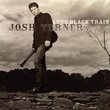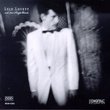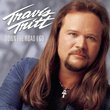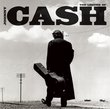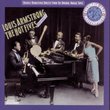| All Artists: Tim Mcgraw Title: Two Lanes Of Freedom [Deluxe Edition] Members Wishing: 0 Total Copies: 0 Label: Big Machine Records Release Date: 2/5/2013 Genres: Country, Pop Style: Number of Discs: 1 SwapaCD Credits: 1 UPC: 843930008568 |
Search - Tim Mcgraw :: Two Lanes Of Freedom [Deluxe Edition]
![Two Lanes Of Freedom [Deluxe Edition]](https://nationalbookswap.com/cd//l/26/4326/13294326.jpg) | Tim Mcgraw Two Lanes Of Freedom [Deluxe Edition] Genres: Country, Pop
A lot of artists can tell you how they feel, says Tim McGraw, but when somebody can tell you how you feel, and you didn t know it or couldn t put it into words, that s the goal. What you want to do as an artist is let some... more » |
Larger Image |
CD Details
Synopsis
Product Description
A lot of artists can tell you how they feel, says Tim McGraw, but when somebody can tell you how you feel, and you didn t know it or couldn t put it into words, that s the goal. What you want to do as an artist is let someone discover how they feel from your music, in a really visceral way, from the inside out. For twenty years, McGraw has been providing that kind of powerful connection with his audience. With Two Lanes of Freedom, his new album and first release for Big Machine Records the singer is covering his broadest emotional range yet, with a set of songs that looks forward and back, gets deep and gets loose, and reveals that even the biggest stars can continue to grow with consistency and maturity.
I feel like I ve progressed in my work, and I ve gotten better, says McGraw. This album was a way to reach a little further back, to all that I d done throughout my career, and bring both sides together it s a combination of that discovery, along with some rediscovery.
When you listen to this record, there s a lot of that reflection that drives everything forward. It s almost like two magnets, the future and the past, and when they get close to each other, it pushes them away. On Two Lanes of Freedom, the sense of nostalgia comes through on such classic-sounding tracks as Annie, I Owe You a Dance and the hard-driving single One of Those Nights. The reverie of those songs, though, is countered by the humor and joy of Southern Girl or the feel-good hangover of Mexicoma. McGraw maintains that it was the album s title track that really established the tone for the entire project. When we cut Two Lanes of Freedom, there was such a freshness to it, he says. The track has this sort of Gaelic drive to it, with a synthesized didgeridoo and hurdy-gurdy.
If the album addresses a set of classic themes in country music, part of the reason may be that it was recorded in a very traditional fashion. We were in the studio for two weeks straight, from ten in the morning until eleven or twelve at night, says McGraw. It was like the old days of making a record, like a bunch of guys going in a submarine and making music. But the sound that resulted, with hints of everything from rock to hip-hop to bluegrass, is hardly limited to the conventional country playbook. I don t ever want to paint anybody into a box when we re in the studio, says the singer. We want these guys to come in and bring everything they have to the table.
The strength and confidence in the musical settings helped McGraw reach some especially emotional depth in his performances on such songs as Number 37405, the lament of a singer-turned-convict. Most powerful of all might be Book of John, a wistful account of a family going through the journal left behind by its late patriarch. The Highway Don t Care, a breezy yet complex track that features two of country music s biggest superstars, Taylor Swift and Keith Urban. When I heard the song, I knew I wanted Taylor to sing on it, says McGraw. And I ve been looking for years for something to have Keith play on, because I think he s one of the best artists we have out there.
These songs are written and constructed in a way that people can impose their own memories and put themselves in your place, like going to a great movie and making yourself the hero, he says. Art has to be cathartic; that s why people enjoy it. It makes you think or reflect, it purges you emotionally. That s what propels you as an artist, and it s what makes a listener stay engaged.
I feel like I ve progressed in my work, and I ve gotten better, says McGraw. This album was a way to reach a little further back, to all that I d done throughout my career, and bring both sides together it s a combination of that discovery, along with some rediscovery.
When you listen to this record, there s a lot of that reflection that drives everything forward. It s almost like two magnets, the future and the past, and when they get close to each other, it pushes them away. On Two Lanes of Freedom, the sense of nostalgia comes through on such classic-sounding tracks as Annie, I Owe You a Dance and the hard-driving single One of Those Nights. The reverie of those songs, though, is countered by the humor and joy of Southern Girl or the feel-good hangover of Mexicoma. McGraw maintains that it was the album s title track that really established the tone for the entire project. When we cut Two Lanes of Freedom, there was such a freshness to it, he says. The track has this sort of Gaelic drive to it, with a synthesized didgeridoo and hurdy-gurdy.
If the album addresses a set of classic themes in country music, part of the reason may be that it was recorded in a very traditional fashion. We were in the studio for two weeks straight, from ten in the morning until eleven or twelve at night, says McGraw. It was like the old days of making a record, like a bunch of guys going in a submarine and making music. But the sound that resulted, with hints of everything from rock to hip-hop to bluegrass, is hardly limited to the conventional country playbook. I don t ever want to paint anybody into a box when we re in the studio, says the singer. We want these guys to come in and bring everything they have to the table.
The strength and confidence in the musical settings helped McGraw reach some especially emotional depth in his performances on such songs as Number 37405, the lament of a singer-turned-convict. Most powerful of all might be Book of John, a wistful account of a family going through the journal left behind by its late patriarch. The Highway Don t Care, a breezy yet complex track that features two of country music s biggest superstars, Taylor Swift and Keith Urban. When I heard the song, I knew I wanted Taylor to sing on it, says McGraw. And I ve been looking for years for something to have Keith play on, because I think he s one of the best artists we have out there.
These songs are written and constructed in a way that people can impose their own memories and put themselves in your place, like going to a great movie and making yourself the hero, he says. Art has to be cathartic; that s why people enjoy it. It makes you think or reflect, it purges you emotionally. That s what propels you as an artist, and it s what makes a listener stay engaged.
Similar CDs
| Gary Allan Set You Free Genre: Country Label: Mca Nashville | |
| Tim Mcgraw Emotional Traffic Genres: Country, Pop Label: Curb Records | |
Similarly Requested CDs
| Tim Mcgraw Tim McGraw - Greatest Hits Genres: Country, Pop Label: Curb Records | |
| Lyle Lovett Road to Ensenada Genres: Country, Alternative Rock, Folk, Pop Label: Mca | |
| Collin Raye The Best Of Collin Raye: Direct Hits [ECD] Genres: Country, Pop Label: Sony | |
| Josh Turner Long Black Train Genres: Country, Pop Label: Mca | |
| Reba Mcentire Reba Duets Genres: Country, Pop Label: Mca Nashville | |
| Lyle Lovett His Large Band Genres: Country, Folk, Pop Label: Mca Nashville | |
| Travis Tritt Down the Road I Go Genres: Country, Pop Label: Sony | |
| Johnny Cash The Legend of Johnny Cash Genres: Country, Pop, Rock, Christian & Gospel Label: Hip-O Records | |

 Track Listings (15) - Disc #1
Track Listings (15) - Disc #1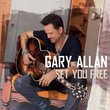
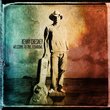

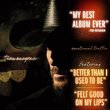
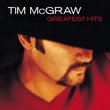
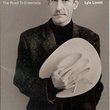
![The Best Of Collin Raye: Direct Hits [ECD]](https://nationalbookswap.com/cd//m/37/6337/246337.jpg)
